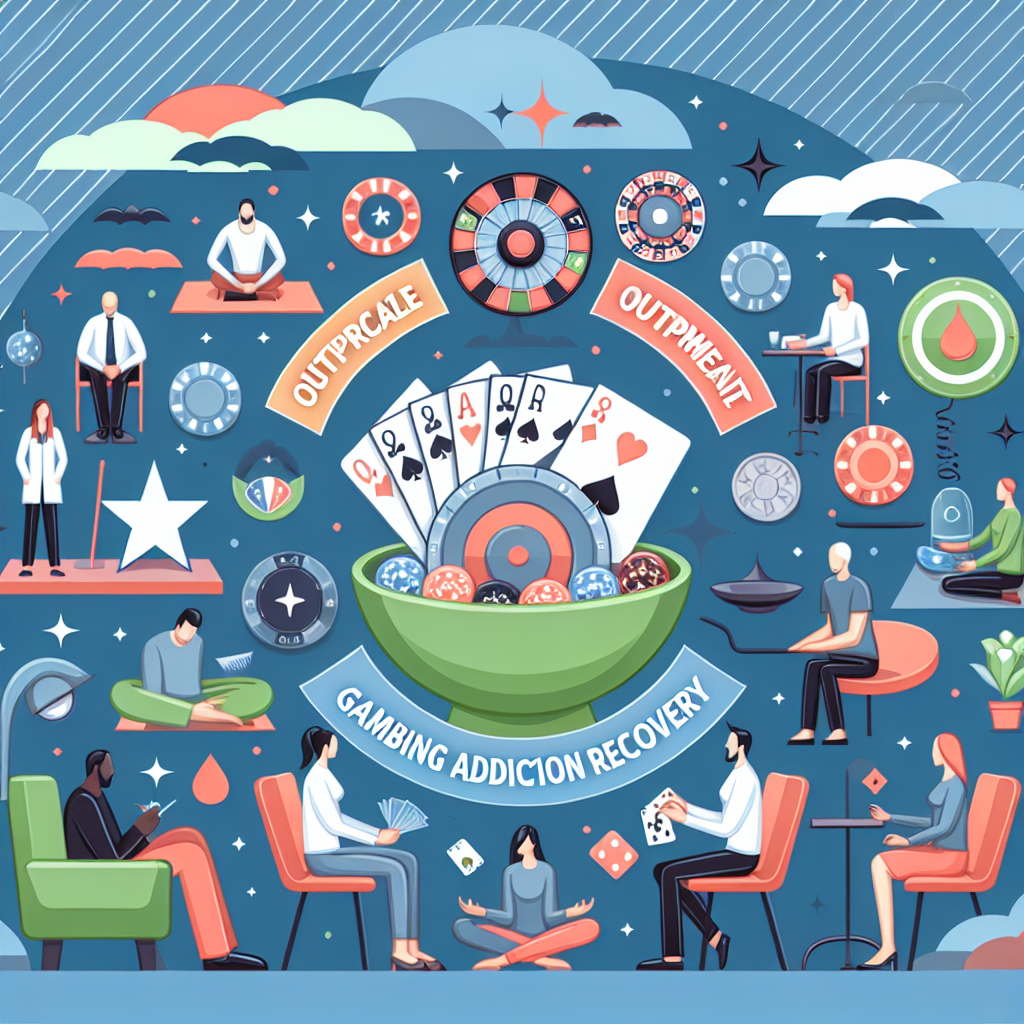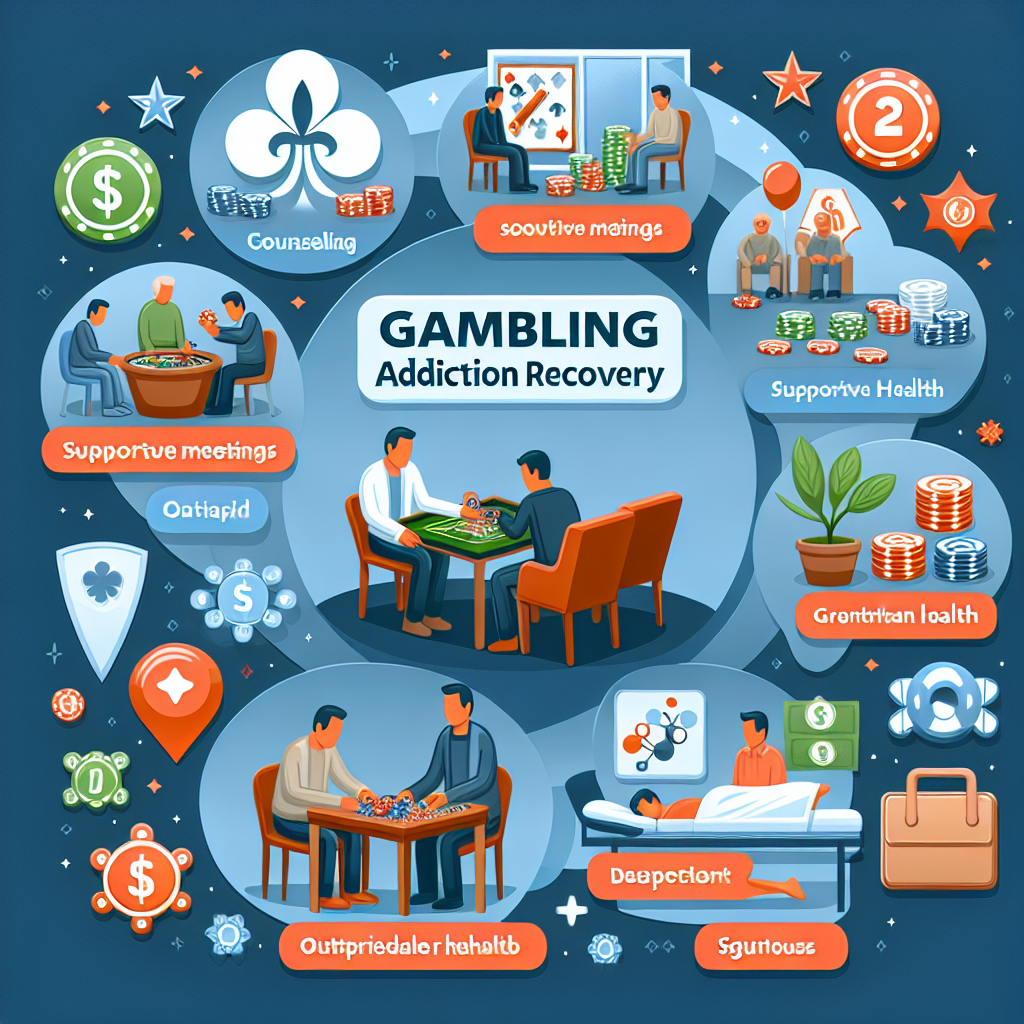-
Table of Contents

“Outpatient Rehab: A Lifeline for Gambling Addiction Recovery?”
Introduction
Outpatient rehab can be a crucial component in the recovery process for individuals struggling with gambling addiction. This form of treatment allows patients to receive professional support and therapy while maintaining their daily responsibilities and routines. Outpatient programs typically offer a range of services, including individual counseling, group therapy, and educational workshops, all designed to address the underlying issues contributing to the addiction. However, the effectiveness of outpatient rehab can vary depending on the severity of the addiction, the individual’s personal circumstances, and their level of commitment to the recovery process. While outpatient rehab provides valuable resources and support, it may not be sufficient for everyone, and some individuals might require more intensive, inpatient treatment to achieve lasting recovery.
Evaluating the Effectiveness of Outpatient Rehab for Gambling Addiction Recovery
Outpatient rehab programs have become a popular choice for individuals seeking recovery from gambling addiction. These programs offer a flexible approach, allowing participants to maintain their daily responsibilities while receiving treatment. However, the question remains: is outpatient rehab enough for gambling addiction recovery? To answer this, it is essential to evaluate the effectiveness of these programs and consider the unique needs of those struggling with gambling addiction.
One of the primary advantages of outpatient rehab is its accessibility. Unlike inpatient programs, which require individuals to stay at a facility for an extended period, outpatient rehab allows participants to attend therapy sessions and support groups while continuing to live at home. This flexibility can be particularly beneficial for those who have work, family, or other commitments that make it difficult to take time away from their daily lives. Additionally, outpatient programs tend to be more affordable than inpatient options, making them a viable choice for individuals with financial constraints.
Moreover, outpatient rehab programs often incorporate a variety of therapeutic approaches, including cognitive-behavioral therapy (CBT), motivational interviewing, and group therapy. These evidence-based treatments have been shown to be effective in addressing the underlying issues that contribute to gambling addiction. For instance, CBT helps individuals identify and change negative thought patterns and behaviors, while motivational interviewing encourages them to find their own motivation for change. Group therapy provides a supportive environment where participants can share their experiences and learn from others who are facing similar challenges.
Despite these benefits, it is important to recognize that outpatient rehab may not be sufficient for everyone. Gambling addiction can be a deeply ingrained behavior, often accompanied by other mental health issues such as depression, anxiety, or substance abuse. For individuals with severe addiction or co-occurring disorders, a more intensive level of care may be necessary. Inpatient rehab programs offer a structured environment where individuals can receive round-the-clock support and supervision, which can be crucial for those who need a higher level of care.
Furthermore, the success of outpatient rehab largely depends on the individual’s level of commitment and support system. Recovery from gambling addiction requires a significant amount of self-discipline and motivation. Participants must be willing to attend therapy sessions regularly, engage in self-reflection, and implement the strategies they learn in treatment. Having a strong support network, including family, friends, and support groups, can also play a critical role in maintaining long-term recovery.
In addition to traditional therapy, many outpatient programs offer supplementary services such as financial counseling, stress management, and relapse prevention planning. These services can help individuals address the practical and emotional aspects of their addiction, providing them with the tools they need to rebuild their lives. However, it is essential for participants to take an active role in their recovery and utilize these resources to their fullest potential.
Ultimately, the effectiveness of outpatient rehab for gambling addiction recovery varies from person to person. While some individuals may find that outpatient treatment provides the support and structure they need to achieve lasting recovery, others may require a more intensive approach. It is crucial for individuals to assess their own needs and seek the level of care that is most appropriate for their situation. By doing so, they can increase their chances of overcoming gambling addiction and leading a fulfilling, addiction-free life.
Comparing Outpatient and Inpatient Rehab Options for Gambling Addiction Recovery
When it comes to gambling addiction recovery, choosing the right treatment option is crucial for long-term success. Both outpatient and inpatient rehab programs offer unique benefits, but understanding which is more suitable for an individual’s needs can make a significant difference in their journey to recovery. Outpatient rehab, in particular, has gained popularity due to its flexibility and accessibility. However, the question remains: is outpatient rehab enough for gambling addiction recovery?
Outpatient rehab programs are designed to provide treatment while allowing individuals to maintain their daily responsibilities, such as work, school, or family commitments. This flexibility can be particularly appealing for those who cannot afford to take extended time off from their obligations. Moreover, outpatient programs often offer a range of therapeutic options, including individual counseling, group therapy, and educational workshops. These resources can help individuals develop coping strategies, understand the root causes of their addiction, and build a supportive network of peers who share similar experiences.
Despite these advantages, outpatient rehab may not be sufficient for everyone. The success of outpatient treatment largely depends on the severity of the addiction and the individual’s personal circumstances. For those with a mild to moderate gambling problem, outpatient rehab can provide the necessary support and tools to achieve recovery. However, individuals with a more severe addiction may require a higher level of care and supervision that outpatient programs cannot offer.
In contrast, inpatient rehab programs provide a structured and immersive environment where individuals can focus solely on their recovery. These programs typically involve a residential stay at a treatment facility, ranging from a few weeks to several months. The controlled setting of inpatient rehab eliminates external distractions and temptations, allowing individuals to fully engage in the recovery process. Additionally, inpatient programs often include comprehensive medical and psychological support, which can be crucial for addressing co-occurring mental health issues that may contribute to the gambling addiction.
One of the key benefits of inpatient rehab is the 24/7 access to professional care and support. This constant supervision can be particularly beneficial for individuals who struggle with intense cravings or have a history of relapse. The structured daily schedule of inpatient programs also helps individuals establish healthy routines and develop new habits that support their recovery. Furthermore, the sense of community within inpatient facilities can foster a strong support network, which is essential for long-term success.
However, inpatient rehab is not without its challenges. The cost of residential treatment can be prohibitive for some individuals, and the need to take time away from work or family can be a significant barrier. Additionally, transitioning back to everyday life after completing an inpatient program can be difficult, as individuals must navigate the same triggers and stressors that contributed to their addiction in the first place.
Ultimately, the decision between outpatient and inpatient rehab should be based on a thorough assessment of the individual’s needs, preferences, and circumstances. For some, the flexibility and accessibility of outpatient rehab may be sufficient to achieve lasting recovery. For others, the intensive support and structure of inpatient rehab may be necessary to overcome their addiction. It is important to remember that recovery is a personal journey, and what works for one person may not work for another. By carefully considering the options and seeking professional guidance, individuals can find the treatment approach that best supports their path to a healthier, gambling-free life.
Q&A
1. **Question:** Is outpatient rehab effective for treating gambling addiction?
**Answer:** Yes, outpatient rehab can be effective for treating gambling addiction, especially for individuals with a strong support system and less severe addiction.
2. **Question:** What factors determine if outpatient rehab is sufficient for gambling addiction recovery?
**Answer:** Factors include the severity of the addiction, the presence of co-occurring mental health disorders, the individual’s support system, and their level of commitment to recovery.
Conclusion
Outpatient rehab can be sufficient for gambling addiction recovery for individuals with a strong support system, lower severity of addiction, and high motivation for change. However, those with severe addiction, co-occurring mental health disorders, or lack of a supportive environment may require more intensive treatment options, such as inpatient rehab, to achieve and maintain recovery. The effectiveness of outpatient rehab ultimately depends on the individual’s specific circumstances and needs.



